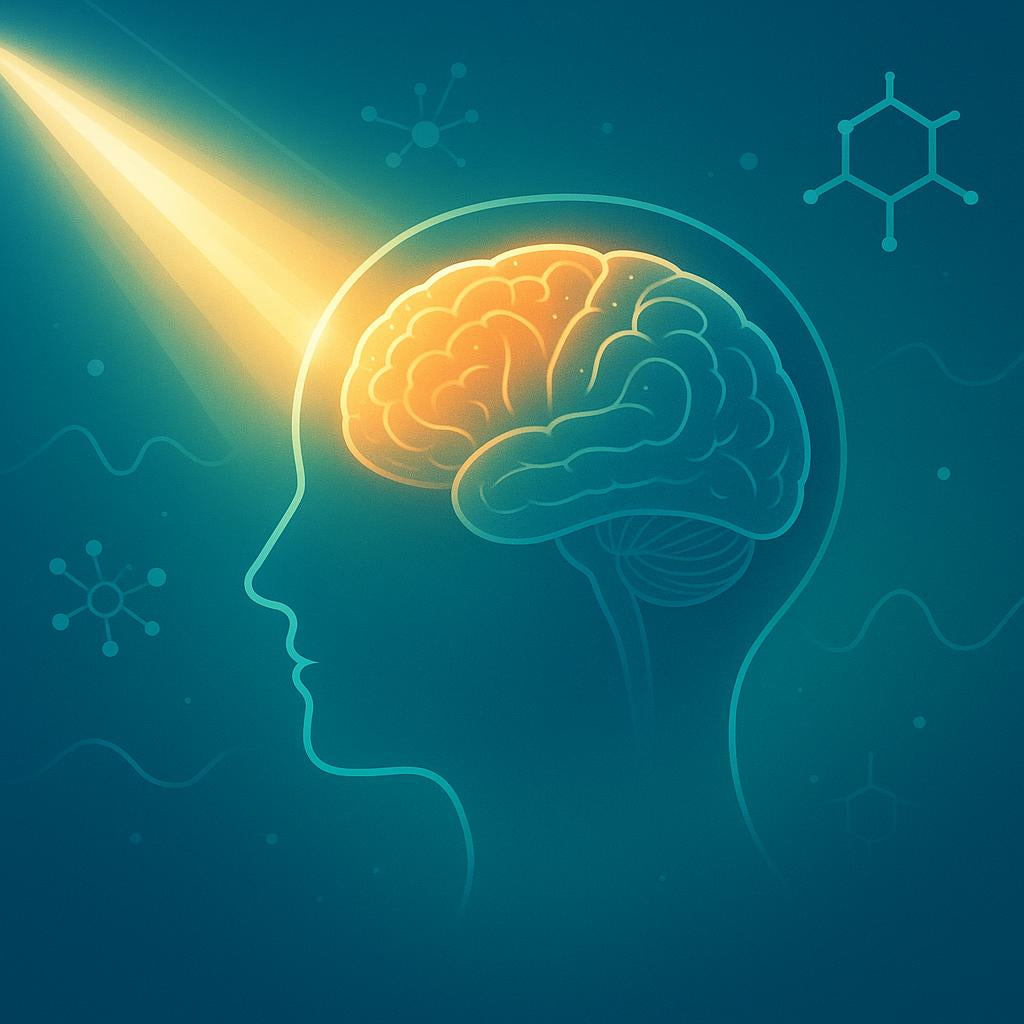Photobiomodulation and Cognitive Health: A Comprehensive Guide
•Posted on July 29 2025

Photobiomodulation and Cognitive Health: A Comprehensive Guide
Advancements in cognitive health therapies continue to evolve, and an exciting frontier involves the use of photobiomodulation and methylene blue. These innovative approaches offer promising outcomes for individuals experiencing cognitive challenges, such as recurrent UTIs and post-traumatic brain recovery.
The Science Behind Photobiomodulation
Photobiomodulation involves using specific wavelengths of light to affect brain function and heal various conditions. Research indicates it can downregulate interleukins and TGF-betas, contributing positively to cognitive health. Notably, it addresses comprehensive aspects of brain health, leaving only a couple of areas unexplored.
Emerging Therapy: The Role of Neurella
A new compound, Neurella, combines many compounds from the RECODE protocol, offering a concise alternative to multiple supplements. This innovation simplifies therapeutic regimens without sacrificing efficacy.
Methylene Blue and Cognitive Revival
Methylene blue has emerged as a potential cognitive enhancer. Renowned researcher Dr. Francisco Gonzalez-Lima explores its role in bypassing the electron transport chain issues. Anecdotal evidence suggests significant improvements in conditions such as UTIs, contributing to overall cognitive recovery.
The Mechanism
Operating by targeting cytochrome c oxidase, methylene blue facilitates increased oxygenation and red blood cell function. This dual-action approach aids in restoring cognitive function following trauma or infection.
Cognitive Monitoring and Photobiomodulation Application
Advancements in interactive devices like light helmets using wavelengths such as 810 and 1070 nm suggest tailored cognitive interventions. Personalized modulation based on real-time EEG data could optimize therapeutic outcomes.
Practical Integration for Health Practices
Clinicians incorporating photobiomodulation and neurofeedback into practice report enhanced patient outcomes, particularly when combined with medication and psychotherapy. Foundations like QuietMind are pivotal in integrating these cutting-edge modalities into mainstream medicine.
Importance of Natural Light Exposure
Our evolutionary relationship with sunlight is crucial for mental and physical health. Regular exposure to sunlight, particularly morning light, regulates circadian rhythms and naturally boosts melatonin production essential for cognitive and overall health.
Future Directions and Opportunities
The inclusion of EEG in devices like Neuradiant could revolutionize personalized treatment, where real-time brain activity guides therapy for maximum effectiveness. These advances open collaborative opportunities across medical and technological fields to enhance health outcomes.
In conclusion, as research progresses, innovative therapies like photobiomodulation and methylene blue illuminate new paths for cognitive health. Embracing these technologies could profoundly impact prevention and treatment strategies for dementia and related conditions.
Watch Lisa's interview with Liam Pingree CEO of Neuronic
